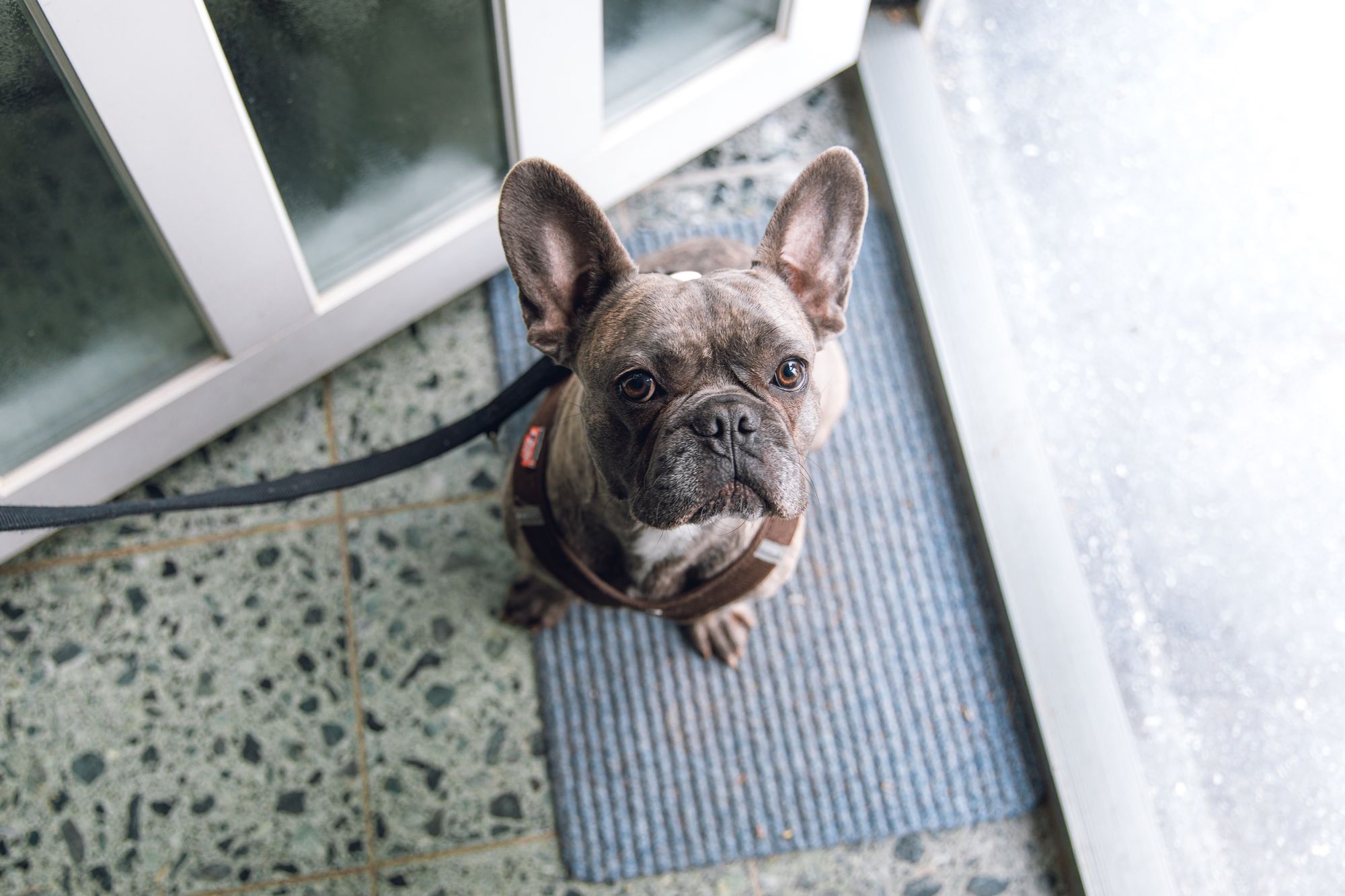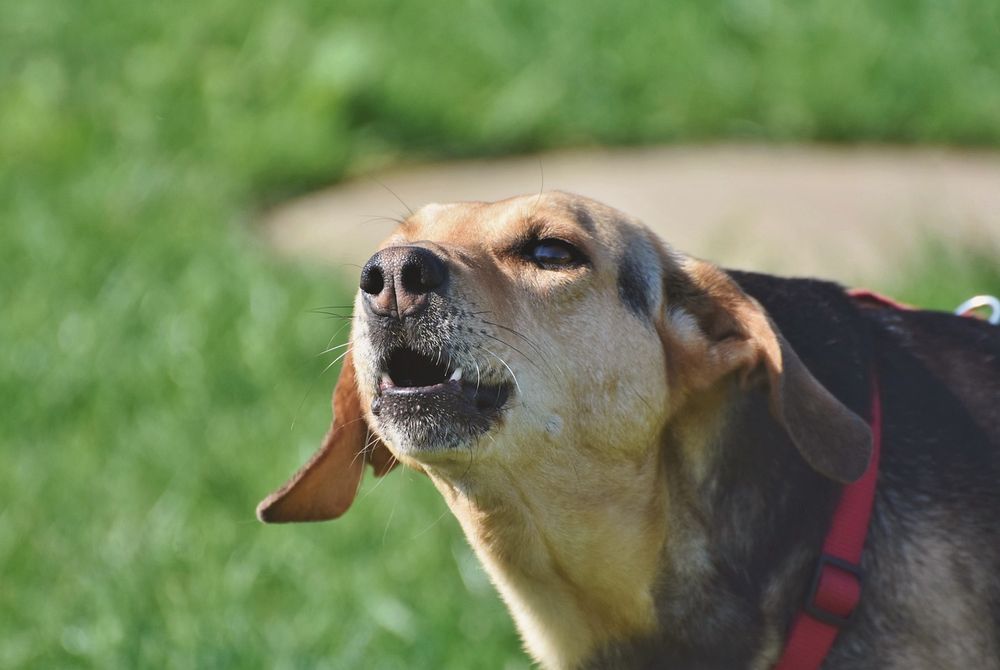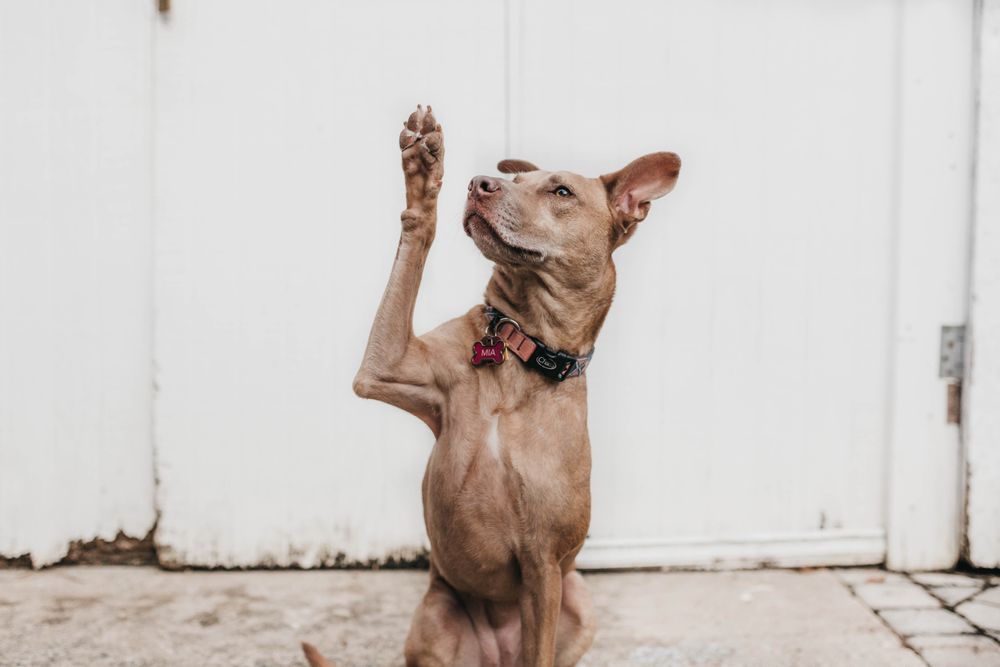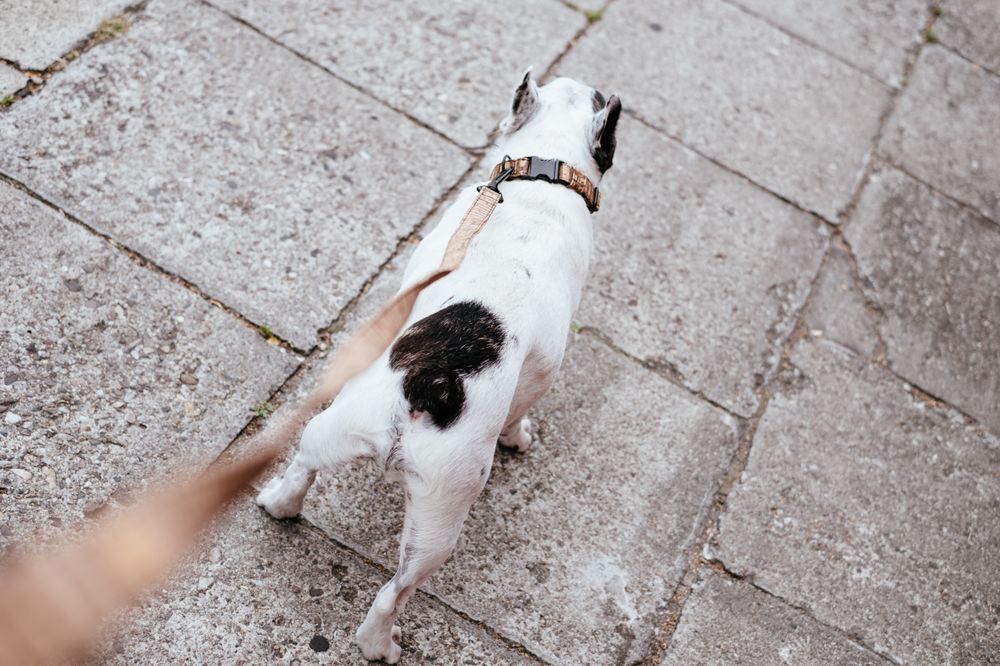For anyone who has a puppy or new dog in their home, house training is typically a number one priority. Most of the time, this means teaching a dog to pee and poop outside and not inside. This can be done painlessly with some smart management tools and a bit of thoughtful attention. To help support you and your dog along your house training journey, this article explains:
- Why dogs go to the bathroom indoors right after being outside
- House training tips
- What other pet parents are asking about house training
Why would your dog go to the bathroom indoors right after being outside?
There are a few reasons your dog might go to the bathroom indoors right after being outside:
- Your dog isn’t completely emptying their bladder or bowels when outside. This can be especially true in the morning, evening or anytime after your dog hasn’t seen you in a while. They are so excited to see you, that they essentially forget to go.
- Your dog is overwhelmed or anxious when outside. There is a lot of stimulation outside, and this can be overwhelming for some dogs. To help your dog get comfortable outside, make walks short, frequent and full of rewards. This will help them become more comfortable and likely to take care of all their business outside.
- You’re distracting your dog when they’re doing their business. Praising your dog for going to the bathroom is something we wholeheartedly recommend, but wait until they’re finished to tell them how proud you are. This will ensure they aren’t distracted and forget to finish up.
- Your dog has a medical condition. Urinary tract infections are a common reason dogs pee after coming in from a walk. This is because they can only get out a few drops at a time, and consequently may be continuously squatting to try and release more pee.

A few tips to continue house training your dog
Solid house training can reduce the likelihood of your dog going to the bathroom in between walks:
- Increase the opportunities your dog has to pee/poop. Instead of one or two long walks each day, keep walks short and make them frequent.
- Refrain from scolding your dog. Getting mad, yelling, rubbing your dog’s face in their pee will do nothing more than make your dog afraid of you and/or afraid to go pee in your presence (including outside where you want them to go).
- Erase mistakes to avoid repeated mistakes. Use an enzymatic cleanser to clean up accidents. Doing so will remove the smell and make your dog less inclined to return to that spot.
- Reduce the area you need to monitor. In between those outings, keep your dog in a confined area of your home where you can see them. A baby gate or keeping your dog leashed indoors is a great option. This way you’ll have more of an opportunity to spot the signs that your dog has to pee / poop.
- Keep a log. Keeping a simple log of when your dog eats and when they relieve themself will help you figure out when to take them out.
- Consider frozen, freeze dried, or dehydrated food. These nutrient rich options can reduce the frequency by which your dog will need to go to the bathroom.
- Reward heavily. When your dog goes in the right spot, reward them with an extra special reward! Give them great treats and tons of verbal praise. Make sure to give it to them after they go, not while they’re going — you don’t want to distract them!
Frequently asked questions about house training your dog
Should I punish my dog if they pee in the house?
Don’t punish your dog if they pee in the house. Getting mad, yelling, rubbing your dog’s face in their pee will do nothing more than make your dog afraid of you and/or afraid to go pee in your presence (including outside where you want them to go).
Do dogs pee indoors out of spite?
Dogs don’t pee indoors out of spite. They pee in the house when they’re experiencing health problems, anxious, afraid, marking their territory, or because it’s been too long since they last went outside.
Why is my housebroken dog suddenly peeing in the house?
A change in bathroom behavior can be a sign of a medical problem, such as a urinary tract infection, and you should consult a vet.




